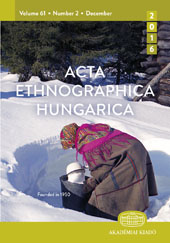Conflict between Traditional and Modern Muslim Practices
Conflict between Traditional and Modern Muslim Practices
Author(s): Dávid Somfai KaraSubject(s): Social history, Social development, Post-Communist Transformation, History of Islam, Sociology of Religion
Published by: Akadémiai Kiadó
Keywords: popular Islam; vernacular Islam; Sufism; fundamentalism; shamanism; nationalism; neo-paganism;
Summary/Abstract: One of the modernization conflicts of Kyrgyz and Kazak society is discussed in this article. It is the conflict between traditional religious activities, post-Soviet Islamic revival and fundamentalism. The Islamization process in Central Asia started during the Mongol Era (13th–16th centuries). The nomadic population was also influenced by Sufi tradition in Central Asia that goes back to the 12th century, but it was labeled as shamanism during Soviet times. After the democratic changes and the declaration of religious freedom, some elements of this 1000-year-old tradition have been revived or revitalized. But the so-called official Islam, sponsored by Arabic states, has turned against the popular version of Islam by using the Soviet label of shamanic tradition. In reality, people practicing these traditions are devoted Muslims, they consider them to be pure Islamic traditions. But nationalist or ethnic religious movements, as well as urban esoteric practices, also incorporate elements of this tradition to legitimize their activities. This creates a very complex situation and a growing hostility between fundamentalist and traditional religious groups.
Journal: Acta Ethnographica Hungarica
- Issue Year: 61/2016
- Issue No: 2
- Page Range: 469-481
- Page Count: 13
- Language: English
- Content File-PDF

